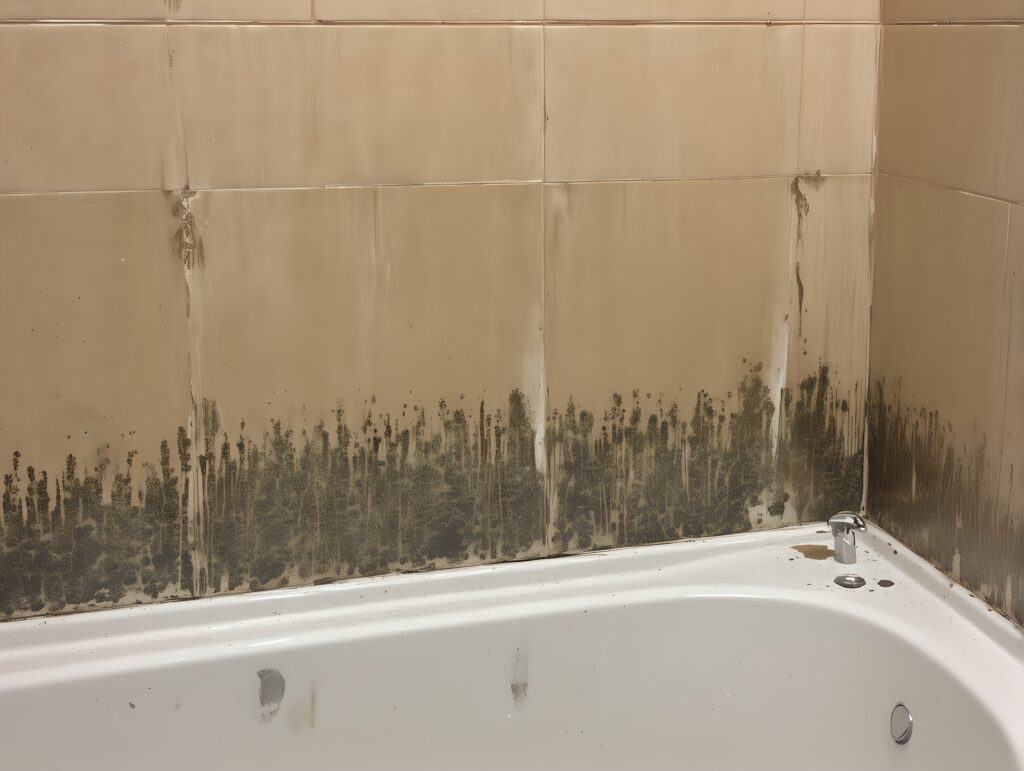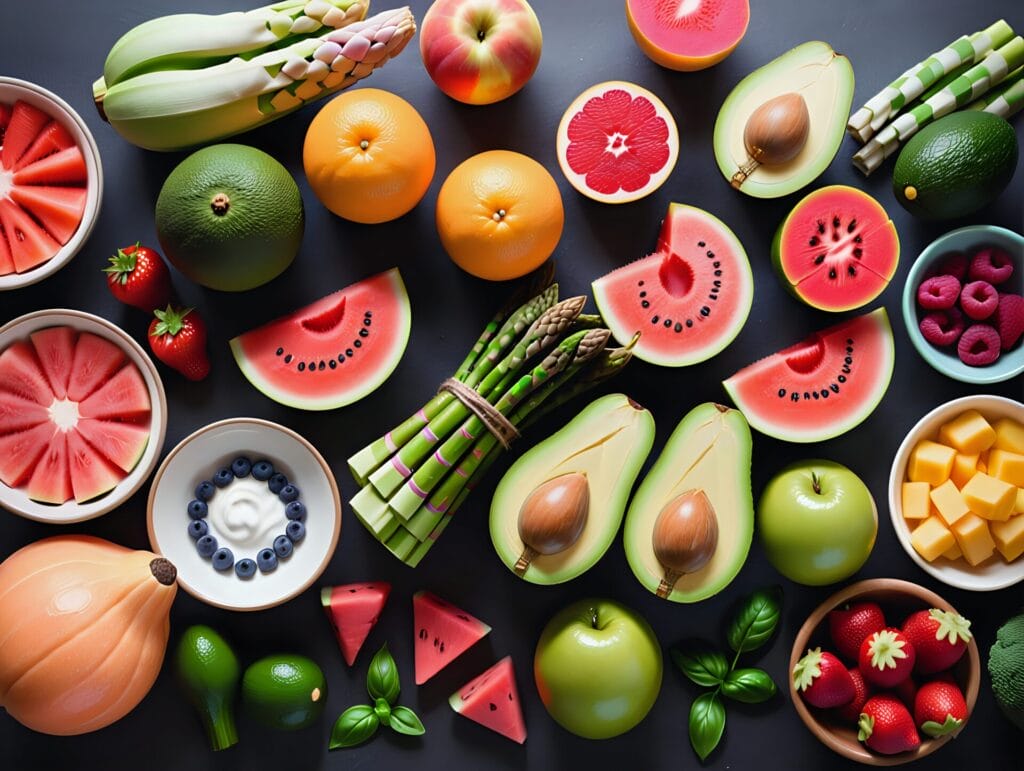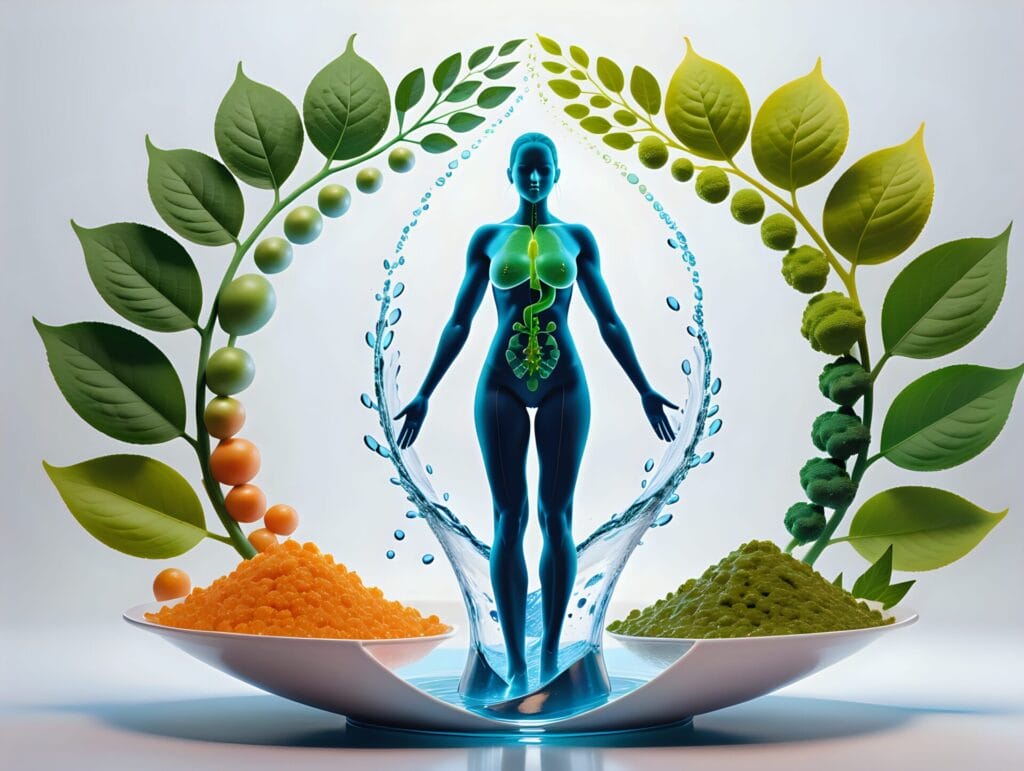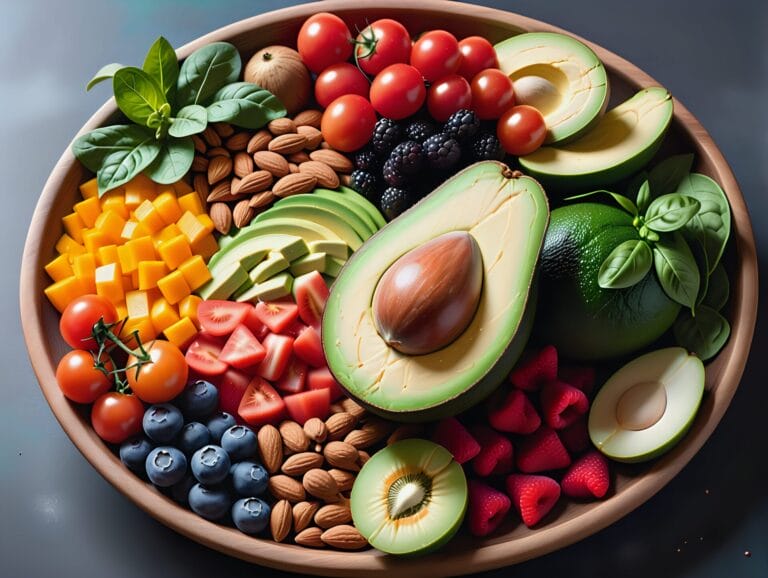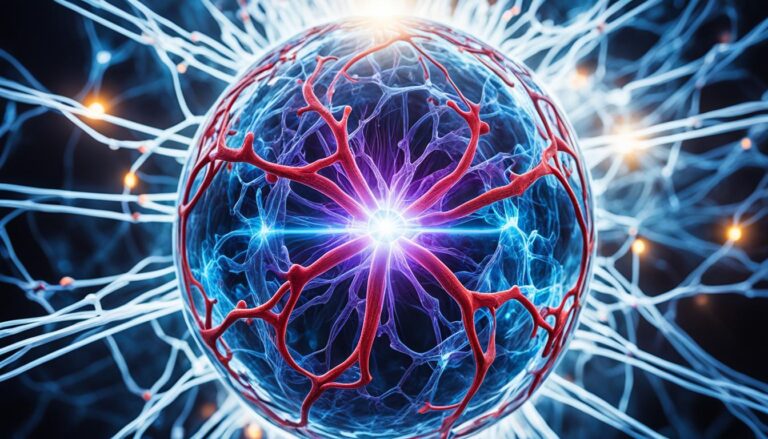Glutathione for Mold Detox: Purify Your Body
Embarking on a journey to purify your body and improve your health can lead you down a path of numerous detoxification methods. But among these, one stands out for its efficacy and critical role within our cellular systems: glutathione for mold detox. As the preeminent defender against the insidious effects of environmental toxins, especially mold-related mycotoxins, glutathione acts as one of the best natural defense strategies to enhance overall wellness. This potent molecule is naturally produced by the body and is often crowned the “mother of all antioxidants”, signifying its paramount importance in maintaining a balanced internal environment free from harmful substances.
Taking a proactive approach in utilizing glutathione for mold detox can help you reclaim a sense of vitality and well-being, safeguarding your health against the invisible invaders that seek to compromise it. Let us delve into the science of glutathione and its indispensable role in maintaining the purity of our bodies and the fortitude of our health.
The Hidden Danger of Mold Toxins in Your Environment
The presence of mold in our environments often goes unnoticed, yet its toxic byproducts, mycotoxins, are lurking threats that can significantly impact our health. Exposure to these potent substances can lead to the onset of an array of debilitating conditions and symptoms, often requiring vigilant oversight and proactive measures to combat.
The Impact of Mycotoxins on Health
Mycotoxins are silent foes with the capability to infiltrate our bodies, posing mycotoxins dangers we may be unaware of. These toxins are often the culprits behind chronic ailments that can be difficult to diagnose due to their broad range of symptoms. Among these are cognitive impairments, which can manifest as difficulty concentrating, memory lapses, and a persistent sense of confusion. Physical symptoms can include severe fatigue that transcends normal tiredness, making it hard for the affected individuals to perform everyday tasks with their usual energy and vigor.

Understanding How Mold Affects Your Body
Mold toxicity is not limited to just cognitive and physical fatigue but extends to chronic inflammatory responses and pain which can drastically reduce one’s quality of life. The glutathione and mold toxicity connection unfolds as glutathione emerges as a key molecule in neutralizing these toxins. The role of glutathione as a detoxifying agent is critical in addressing the insidious effects of mold toxicity, offering a sliver of hope to those battling these omnipresent environmental hazards with glutathione for mold detox.
Introducing Glutathione: The Master Antioxidant
Delving into the world of detoxification reveals one extraordinary molecule revered for its prowess in protecting and rejuvenating our bodies—the master detoxifier, glutathione…also known as GSH. This tripeptide is a marvel of nature, stringing together amino acids glutamine, glycine, and cysteine into a potent defense shield. Its benefits for detox extend far beyond ordinary antioxidant capabilities and have become an indispensable asset in our constant battle against toxin exposure.
Known for its unparalleled ability to scavenge harmful free radicals, glutathione is key to neutralizing the unseen agents of cellular damage. By acting as an electron donor, this powerful antioxidant does not merely transfer the problem from one molecule to another—it stabilizes vicious free radicals without sacrificing its own stability. In an intricate dance of chemistry, glutathione thus serves as the body’s natural protector against the oxidative stress that accelerates aging and disease progression.
How Glutathione Works as a Detoxifier
Facing a relentless onslaught of contaminants, our bodies rely on various defense mechanisms to purge these unwanted guests, and glutathione stands at the front line. Its title as the master detoxifier isn’t merely a nickname; it’s a functional role it plays with finesse. Glutathione engages directly with toxins, facilitating their conversion into less harmful compounds that can be excreted with ease. In this way, it personifies the essence of cellular cleansing, ensuring that the threat of toxin accumulation is kept at bay.
Glutathione’s Role in Neutralizing Free Radicals
Imagine a world where oxidative stress reigns, a world where free radicals rampage through our bodies, leaving a trail of damaged cells in their wake. Here is where glutathione steps in, embodying hope in this seemingly desperate landscape. It lends an electron to these unstable marauders, thus neutralizing free radicals and stripping them of their destructive power. This function not only underscores the crucial glutathione benefits for detox but also demonstrates why maintaining optimal levels of this antioxidant is essential to our health and well-being.
Glutathione for Mold Detox
Understanding how to use gsh for mold detox is fundamental for individuals exposed to mold and its toxic byproducts. Mycotoxins from mold can cause severe health issues, and glutathione is a critical element in your body’s defense system, facilitating the detoxification process. With age, however, our natural glutathione production wanes, increasing the risk of toxin accumulation and potentially leading to a glutathione deficiency. This shortfall can provoke a systemic immune response, further exacerbating the body’s toxic load.
The mold detox protocol with glutathione rests on the principle that glutathione directly contributes to the neutralization of mycotoxins. Utilizing glutathione in your detox regimen can provide your liver—the primary organ responsible for toxin filtration—with the necessary support to process these invasive compounds effectively. Without sufficient glutathione, toxins may begin to back up, akin to a traffic jam in your liver, resulting in mitochondrial damage which is a powerhouse of the cell and impairs further production of this essential antioxidant, culminating in a vicious cycle that worsens one’s susceptibility to mold-related symptoms.
Incorporating a mold detox protocol with glutathione can not only alleviate the immediate symptoms associated with mycotoxin exposure but also fortifies the liver’s ability to combat future encounters. Awareness and action in boosting glutathione levels can be integral to safeguarding against the long-term impacts of mold toxins, ultimately leading to a more balanced and healthier state of being within our often-unseen environmental battleground.
Mitigating Oxidative Stress with Glutathione
Oxidative stress is an insidious threat that undermines our health on a cellular level, causing a cascade of reactions that can lead to chronic diseases. This phenomenon occurs when there’s a marked imbalance between the production of free radicals—unstable molecules that can damage cells—and the body’s ability to quell their harmful effects with antioxidants. As we navigate through a world laden with environmental risks, which includes the ever-present danger of mold toxins, the importance of glutathione in mold detoxification becomes evident.
Glutathione’s role is multifaceted; it acts as a scavenger of free radicals, an enabler of metabolic processes, and a crucial factor in maintaining the delicate balance our bodies need to thrive. Understanding the nuanced interplay between glutathione, oxidative stress, and the toxins that instigate it, particularly mold-related mycotoxins, is imperative for anyone seeking to defend their health against these invisible adversaries.
Oxidative Stress and Its Consequences
Undoubtedly, oxidative stress sets the stage for a vast array of health struggles. When the scales are tipped too far in favor of free radicals, cellular structures like lipids, proteins, and DNA suffer damage. These small battles at the microscopic level can escalate into full-blown war, manifesting as a spectrum of chronic diseases that compromise our vitality. It’s here that antioxidants, chief among them glutathione, rise as necessary warriors, fiercely and deftly neutralizing free radicals, thus shielding our biological systems from their chaotic influence.
The Balance Between Antioxidants and Free Radicals
The body’s internal battleground is a site of constant activity where antioxidants and free radicals face off in an ongoing struggle for supremacy. Antioxidants, like glutathione, serve not only to obliterate these malevolent radicals but also to repair the damage done. In the context of this delicate balance, glutathione emerges as more than just an antioxidant—it’s a critical component of the body’s detox mechanism, especially when combating the oxidative stress induced by mold mycotoxins. Through its multi-level actions, glutathione supports health and staves off the negative effects of environmental encounters, showcasing its indispensable nature in the daily fight for homeostasis and well-being.
Nine Essential Benefits of Glutathione for Detox
When discussing detoxification, glutathione benefits take center stage due to its vital functions that impact various aspects of health. This naturally occurring compound is critical in enhancing our body’s resilience against the onslaught of environmental toxicities we encounter daily. Its role is not limited to detoxifying harmful substances but extends to a range of physiological benefits.
In today’s fast-paced world, marked by environmental stressors and health challenges, the ability of glutathione to improve chronic illnesses is especially noteworthy. Patients suffering from conditions like Parkinson’s and Alzheimer’s find a beacon of hope in glutathione’s therapeutic effects. But what makes this molecule a powerhouse of health?
Enhancing Immune Function with Glutathione
One of the most compelling glutathione benefits is its ability to boost immune function. It does so by promoting T-cell function, which is indispensable for a robust immune system. By shoring up our body’s defense mechanisms, glutathione equips us to fend off pathogens and reduces the likelihood of falling prey to common illnesses, thus maintaining our health’s fortress.
Glutathione’s Role in Slowing Aging and Improving Chronic Illnesses
Aging is an inevitable process, yet glutathione serves as an anti-aging ally by helping to slow down the progression of time on the cellular level. Its DNA repair capabilities preserve the integrity of cells, thereby delaying the signs of aging and combating age-related health decline. For those grappling with chronic illnesses, such as Autism, AIDS, IBS, and other autoimmune disorders, the restorative power of glutathione can lead to significant health improvements and contribute to a better quality of life.
Linking Mold Exposure to Glutathione Depletion
Unseen and often undetected, mold within our environments poses a significant threat to our health, primarily through the release of mycotoxins. These natural toxins are capable of wreaking havoc at a cellular level, which can lead to a decrease in the body’s supply of one of its most crucial defenders: glutathione. This depletion has stark implications for our well-being, particularly as it pertains to glutathione for mold exposure and glutathione for mold illness.
As mycotoxins infiltrate the body, they prompt a critical response from the immune system, which relies heavily on glutathione to neutralize and eliminate these insidious invaders. This constant battle can lead to the exhaustion of glutathione stores, hampering the body’s ability to fight back and, in effect, contributing to an environment ripe for ongoing health issues. Let’s explore the mechanisms behind this depletion and its broader health implications.
How Mold Reduces Glutathione Production
Research has shown that continuous exposure to mold and its byproducts can disrupt the natural synthesis of glutathione in the body. The persistent battle against mycotoxins places a considerable strain on glutathione reserves, as these toxins directly interfere with the body’s detoxification pathways. When these pathways are compromised, glutathione production can no longer keep pace with demand, leading to a systemic reduction in this critical antioxidant.
Effects of Mycotoxin Accumulation on Health
The accumulation of mycotoxins not only challenges the immune system but also translates into a variety of health issues. As glutathione levels fall, individuals may experience exacerbated symptoms of mold toxicity including fatigue, respiratory issues, and cognitive dysfunction. A systemic immune reaction is also a common consequence of mycotoxin accumulation, furthering the decline of health and vitality. It’s through this lens that we identify and understand the crucial role played by glutathione in combatting mold-related stress on the body.
Glutathione-Rich Foods and Herbs for Detox Support
Optimizing your internal detoxification mechanisms can be achieved through dietary choices enriched with glutathione-rich foods. Incorporating sulfur-containing vegetables into your meals is a superb strategy for bolstering your body’s glutathione levels naturally. The likes of broccoli, cauliflower, Brussels sprouts, garlic, and onions, not only impart a burst of flavor to your dishes but also work behind the scenes to enhance this critical antioxidant within your system.
Moreover, a focus on foods high in amino acids – such as lean meats, eggs, nuts, dried beans, and fish – is essential, as these nutrients are the building blocks of glutathione. Including them in your diet helps ensure a steady supply of the necessary components for glutathione synthesis.
Herbs like milk thistle and flaxseed, revered for their medicinal properties, are also powerful allies in the quest for increased glutathione production. These herbs have been recognized for their ability to support liver health, which is vital for detoxification processes.
To complement the natural intake of glutathione through food, looking into the best glutathione supplements for detox could be beneficial as well. Especially for those seeking to combat the natural decline of glutathione with age, supplements such as high-quality whey protein can be effective in maintaining peak glutathione levels and supporting the body’s capacity to detoxify.
Remember that integrating these glutathione-enhancers into a balanced lifestyle that includes adequate sleep, regular exercise, and mindfulness practices can further optimize your body’s natural detoxification systems. As you make these adjustments, observe how the reinforcements you provide through your diet can bolster your resilience against toxins and propel you toward a state of enhanced well-being.
Advantages of Intravenous Glutathione for Mold Detoxification
Amidst the myriad of strategies to combat mold-related toxicity, intravenous glutathione therapy stands out as a forefront methodology. Given the severity of mold toxicity and its pervasive health implications, the immediate and targeted action of IV glutathione therapy offers a lifeline to those seeking relief from the deleterious effects of mold exposure. By directly entering the bloodstream, this powerful therapy provides a potent dose of the master antioxidant, renowned for its detoxifying prowess, and ensuring maximum bioavailability.
Now let us explore the specific reasons why this form of therapy offers superior detoxifying action, and what you can anticipate regarding the immediate effects on mold toxicity symptoms.
Why IV Glutathione Therapy is Superior for Detox
When it comes to detoxification, especially from insidious mold toxins, intravenous glutathione therapy holds superiority over its oral counterparts. Oral supplements of glutathione face the challenge of navigating the harsh environment of the digestive tract, where the compound can be broken down before it ever reaches systemic circulation. Conversely, IV therapy circumvents this barrier, depositing glutathione directly into the bloodstream, where it can exert its effects rapidly and unimpeded.
This mode of delivery ensures that therapeutic concentrations of glutathione are immediately available to tissues and organs in need. By maximizing the concentration levels of glutathione, IV therapy enhances the body’s natural detoxification pathways, facilitating the excretion of mold mycotoxins and possibly alleviating oxidative stress more efficiently than traditional methods.
Immediate Effects of Glutathione IV on Mold Toxicity Symptoms
The scourge of mold toxicity places a hefty toll on the body, with symptoms ranging from fatigue and headaches to more severe neurological and respiratory complaints. The introduction of intravenous glutathione therapy has been associated with noticeably rapid results. Patients often report immediate effects of glutathione following IV administration, which may include an uplift in energy levels, alleviation of brain fog, and improved respiratory function.
The quick onset of symptom relief is a testimony to the efficacy of glutathione administered intravenously, reinforcing its pivotal role in neutralizing toxins and reinvigorating compromised organ systems. Ongoing research continues to validate these claims, painting IV glutathione therapy as integral within the broad spectrum of holistic detox approaches.
The Importance of Glutathione in Repairing DNA
The exploration of glutathione benefits extends into the intricate world of cellular health, where it plays a vital role in the critical process of DNA repair. As our body’s frontline defense against oxidative damage, glutathione safeguards the stability and integrity of genetic material, an essential thread in the fabric of life. The presence of glutathione within cells is not merely coincidental but rather an evolutionary measure to ensure the continuation of proper cellular function and the prevention of mutations that could lead to disease.
Delving deeper into its molecular actions, glutathione operates as a guardian, deterring the potentially harmful alterations in the DNA strand that free radicals can cause. This natural antioxidant system intercepts oxidative attacks, allowing the body to conduct necessary repairs and uphold the fidelity of its DNA. The significance of this function is profound, influencing not just the health of individual cells, but the overall well-being of the entire organism. The broader implications of glutathione’s ability to facilitate DNA repair are monumental, considering its contribution to preventing the progression of certain diseases and maintaining optimal cellular health and function.
As we navigate through environments laden with stressors that can spur genetic damage, the replenishment and maintenance of glutathione levels become paramount. Through its tireless work in DNA repair and protection, glutathione underscores its irreplaceable role in nurturing the vitality and longevity of our cells, and by extension, our health. It’s not just about detoxification — the comprehensive glutathione benefits embody a promise for a future where our biological resilience stands as a testament to this incredible molecule’s power.
Strategies to Boost Natural Glutathione Production
To realize the potential of boosting natural glutathione production, it’s essential to turn towards integrated health practices. Such approaches can increase glutathione production through lifestyle modifications and targeted dietary adjustments. Together, these strategies forge a holistic path to enhancing your body’s innate ability to detoxify and protect against harmful environmental aggressors.
Incorporating Glutathione-Inducing Lifestyle Changes
Lifestyle changes play a pivotal role in aiding the body’s glutathione production. By adopting certain practices, you can significantly contribute to improving your overall well-being. Engaging in regular physical exercise, getting sufficient sunlight exposure for vitamin D synthesis, and practicing stress-relief techniques like yoga or meditation are all productive ways to foster a conducive internal environment for the body to synthesize glutathione. Moreover, prioritizing quality sleep allows the body to repair and rejuvenate cells, ultimately supporting the immune system and increasing glutathione levels.
Dietary Adjustments to Enhance Glutathione Levels
Alongside lifestyle enhancements, dietary adjustments hold immense promise for increasing glutathione levels naturally. Emphasizing foods rich in sulfur compounds, such as garlic, onions, and cruciferous vegetables, can bolster glutathione synthesis. Incorporating meats high in cysteine—like chicken, turkey, and beef—into your diet provides the essential amino acids necessary for glutathione formation. Furthermore, foods that contain selenium, such as Brazil nuts and sunflower seeds, contribute to enzyme activities that support glutathione’s function in the body. Adding these nutrient-dense foods to your regular diet is a fundamental aspect of maintaining healthy glutathione levels, which, in turn, nurtures your body’s defense systems.
How Glutathione Strengthens Mitochondria Against Mold Toxins
Within the battlefield of our bodies, a microscopic struggle rages against toxic invaders that can derail our health. Mold, an unassuming yet formidable adversary, can release mycotoxins capable of inhibiting the vitality of our cells. Key to fortifying our cellular defenses is glutathione, an antioxidant that not only helps to detoxify mycotoxins but profoundly strengthens mitochondria, the energy factories within our cells.
Glutathione’s intrinsic ability to shield our mitochondria from oxidative damage is a testament to its nickname, the “mother of all antioxidants.” Mold toxins, in their relentless quest to destabilize mitochondrial membranes, encounter the indomitable force of glutathione. By donating electrons, glutathione neutralizes the oxidative onslaught, ensuring the integrity and functionality of these critical organelles are preserved.
With the strategic use of glutathione, the resilience of mitochondria against the ravages of mold toxins is bolstered, enabling them to maintain optimum energy synthesis required for cellular operations. As these energy hubs are fortified, the body’s natural rhythm and vigor are sustained, illustrating glutathione’s pivotal role in promoting health and combating the detriments of environmental exposure. Thus, harnessing the power of glutathione not only helps to detoxify mycotoxins but also serves as a guardian of mitochondrial integrity, standing as a cornerstone for our wellbeing in the face of microscopic threats.
Combatting Environmental Toxins through Glutathione Supplementation
In an era where exposure to environmental toxins is almost inevitable, we find solace in nature’s own protective mechanisms. Chief among these is glutathione, a potent antioxidant that plays an essential role in our body’s ability to withstand and process the myriad of pollutants we confront on a daily basis. Glutathione supplements emerge as a beacon of hope for those seeking to support their body’s detox pathways amidst a sea of chemicals and heavy metals that characterize our modern world.
The Role of Glutathione in a Toxic World
Glutathione’s significance in our body’s defense system against environmental toxins cannot be overstated. As a natural detoxifier, it helps to maintain the delicate balance of antioxidants required to neutralize the harmful effects of toxins. In a landscape punctuated by pollutants, from the air we breathe to the products we use, glutathione provides a critical line of support that helps mitigate the potential damage caused by these insidious substances.
Supporting Detox Pathways with Glutathione Supplements
In response to the growing concern over toxin exposure, glutathione supplements offer a targeted way to uphold and assist our body’s intrinsic detox pathways. Fortifying our system with this essential compound aids in the swift and efficient removal of unwanted contaminants, ensuring that the processes responsible for purging toxins remain unimpeded and effective. Through such intervention, glutathione supplements stand as a bastion against the relentless tide of pollutants that challenge our well-being and support our pursuit of optimal health.
Utilizing a natural supplements based glutathione precursor protocol like our Viprox Therapy can greatly enhance your over all health. The Viprox Protocol consists of Viprox and Viprox Junior packages. The packages contain GSH Complex for restoring, strengthening and balancing your immune system. Une Vie for enhanced hydration and Triozyme enzymes that support improved digestion.
- Glutathione for Hangovers: Your Recovery Solution - July 2, 2024
- Top Glutathione Foods High in Antioxidant Power - June 30, 2024
- Boost Your Health with Top Foods for Glutathione - June 21, 2024


